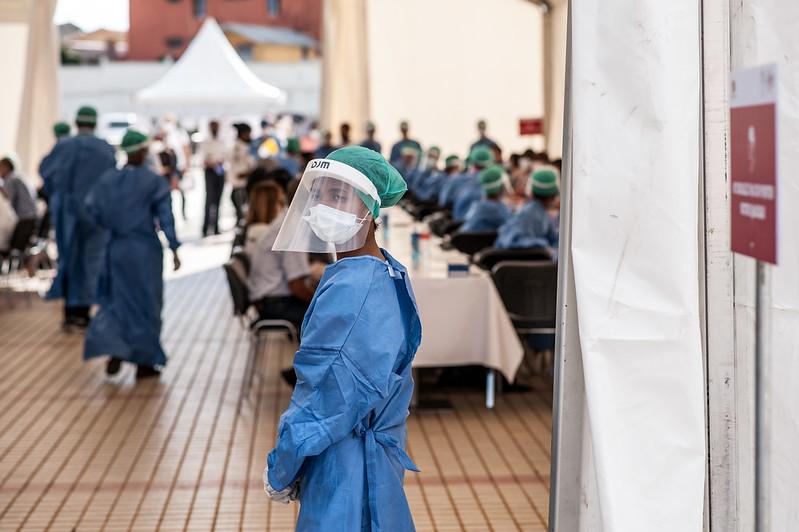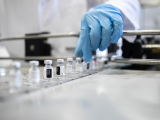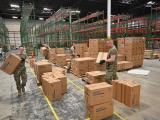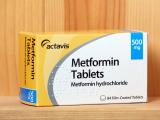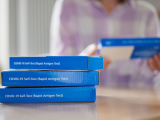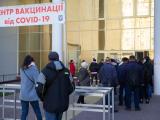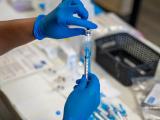As the global COVID-19 total topped 75 million cases today and immunization gained traction in a handful of developed countries, the World Health Organization (WHO) today announced new deals with companies to ensure that poorer countries start receiving doses in the first half of 2021.
More funding needed
Global health officials have feared that richer nations could snap up much of the supply of COVID-19 vaccines, and since the early days of the pandemic, the WHO and its partners, including the GAVI vaccine alliance, have been pushing forward with COVAX, a plan to support the development of new vaccines and secure doses for participating countries.
Experts have maintained that beating back the virus in all parts of the world, especially with vaccine, is a key step in ending the pandemic threat, but there are deep worries that a wide funding gap will cause a lengthy delay in the first vaccine deliveries for developing nations.
In its announcement, the WHO said COVAX now has agreements in place to access nearly 2 billion doses of several promising vaccine candidates.
New deals announced today include an advance purchase agreement for 170 million doses of the AstraZeneca-Oxford candidate vaccine and a memorandum of understanding with Johnson & Johnson for 500 million doses of the Janssen candidate. COVAX has existing agreements with the Serum Institute of India for 200 million doses, with options for as many as 900 more, and a statement of intent of 200 million doses of the Sanofi-GSK vaccine candidate.
The WHO added that the agreements mean all 190 COVAX participants will be able to access doses to protect vulnerable groups in the first half of 2021. And the group projects that by the end of 2021, at least 1.3 billion donor-funded doses will be available to 92 lower-income economies, targeting 20% of their populations. It emphasized that deliveries are based on regulatory approvals and country readiness to receive the vaccines.
However, COVAX needs $6.8 billion in 2021 to achieve its ambitious goal, the WHO said. Over the past 2 weeks, GAVI has received pledges from a number of countries, bringing the overall amount raised to $2.4 billion, the WHO said. They include Norway, Canada, Kuwait, Denmark, New Zealand, the Netherlands, the King Salman Humanitarian Aid and Relief Centers, Estonia, and Team Europe.
Marking today's observance of World Migrant Day, WHO Director-General Tedros Adhanom Ghebreyesus, PhD, said at a briefing today that it's vital to include refugees and migrants in plans for vaccine rollout. Though migrants face discrimination and a lack of health services, they make enormous contributions to society he said, adding that Turkish migrants to Germany developed the first approved COVID-19 vaccine, and a nurse from the Philippines administered the first vaccine dose in the United Kingdom.
Mike Ryan, MD, who directs the WHO's health emergencies program, when questioned about developed countries beginning their vaccine campaigns, said it isn't useful to turn vaccine rollout into a footrace and that getting to the finish line first doesn't help the world. He added that the focus should be on the whole world moving forward. "Science has delivered, now we need solidarity," he said.
Europe's cases,deaths stay high
Hans Henri Kluge, MD, MPH, who directs the WHO's European regional office, said in a statement today that COVID-19 activity in Europe is still intense and widespread, and as of yesterday, the region's death toll from the virus passed 500,000, with fatalities occurring at the highest rates since the beginning of the year.
Though some European countries ordered early lockdowns to tamp down their second surges, some that did so and others that took less aggressive measures continue to struggle with high caseloads. For example, Switzerland today announced a partial lockdown that takes effect on Dec 22, shuttering restaurants, bars, and other public places.
Sweden, which has been reporting daily record high cases, today tightened its restrictions, requiring most people to work from home and putting occupancy limits on restaurants, shops, and gyms, according to the Associated Press.
Elsewhere in the world:
- China plans on vaccinating 50 million people in priority groups, which includes health and essential workers, ahead of peak Lunar New Year travel, the South China Morning Post reported. The country had authorized three vaccine from two Chinese companies for emergency use.
- Australia has imposed some new state border closures as it battles a new cluster of local COVID-19 activity near Sydney that has grown to 28 cases, according to Reuters. Authorities have traced the source of the clusters to two clubs at Avalon beach, and genome sequencing suggests the United States is the source of the virus.
- South Africa is investigating a new variant of SARS-CoV-2, the virus that causes COVID-19, that is responsible for a second spike in infections, according to Reuters, which cited the country's health ministry. At today's WHO briefing, Maria Van Kerkhove, PhD, the group's technical lead for COVID-19, said the WHO is aware of the development and that South Africa has worked hard to increase its sequencing capacity. She said so far it's not clear if the variant is linked to any changes in virus behavior, such as increased transmissibility, but studies are under way to explore the issues.
- The global total today reached 75,433,871 cases, with 1,670,531 deaths, according to the Johns Hopkins online dashboard.
